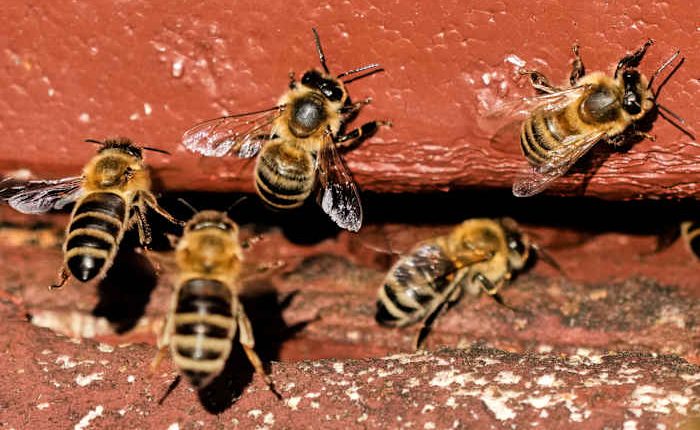Share this @internewscast.com

COLOGNE – On the eighth annual “World Bee Day,” the bees did not seem bothered.
They should be.
Bees and other pollinators have been diminishing for years, and experts attribute this to several factors: insecticides, parasites, disease, climate change, and a lack of diverse food sources. A crucial portion of the human diet is derived from plants pollinated by bees—not just honeybees, but hundreds of species of lesser-known wild bees, many of which are endangered.
In 2018, the U.N. General Assembly organized the first “World Bee Day” to highlight the struggles of bees. Small actions such as planting a pollinator garden or purchasing raw honey from local farmers were recommended.
May 20 was selected for “World Bee Day” to align with the birthdate of Anton Janša, an 18th-century pioneer in modern beekeeping techniques from Slovenia.
In Germany, where bees contribute 2 billion euros ($2.3 billion) in economic benefits, they’re key to pollinating the iconic yellow rapeseed fields that dominate the countryside in the spring.
On Tuesday, around 400,000 bees in urban rooftop hives in the western city of Cologne — where the yellow fields flower — were busy at work making honey.
They seemed oblivious to the threats that endanger their survival. Scientists and bee experts like Matthias Roth, chairman of the Cologne Beekeepers Association, hope World Bee Day can raise awareness.
For Roth, it’s crucial to protect both honey bees — like the ones in his rooftop hives — and wild species. His organization has set up nesting boxes in the hopes of helping solitary bees, which don’t form hives, but Roth fears that it’s not enough.
“We must take care of nature,” Roth said Tuesday. “We have become far removed from nature, especially in cities, and we must take care of wild bees in particular.”
___
Fanny Brodersen reported from Berlin, and Michael Probst from Wehrheim, Germany. Kerstin Sopke and Stefanie Dazio contributed to this report from Berlin.
Copyright 2025 The Associated Press. All rights reserved. This material may not be published, broadcast, rewritten or redistributed without permission.










